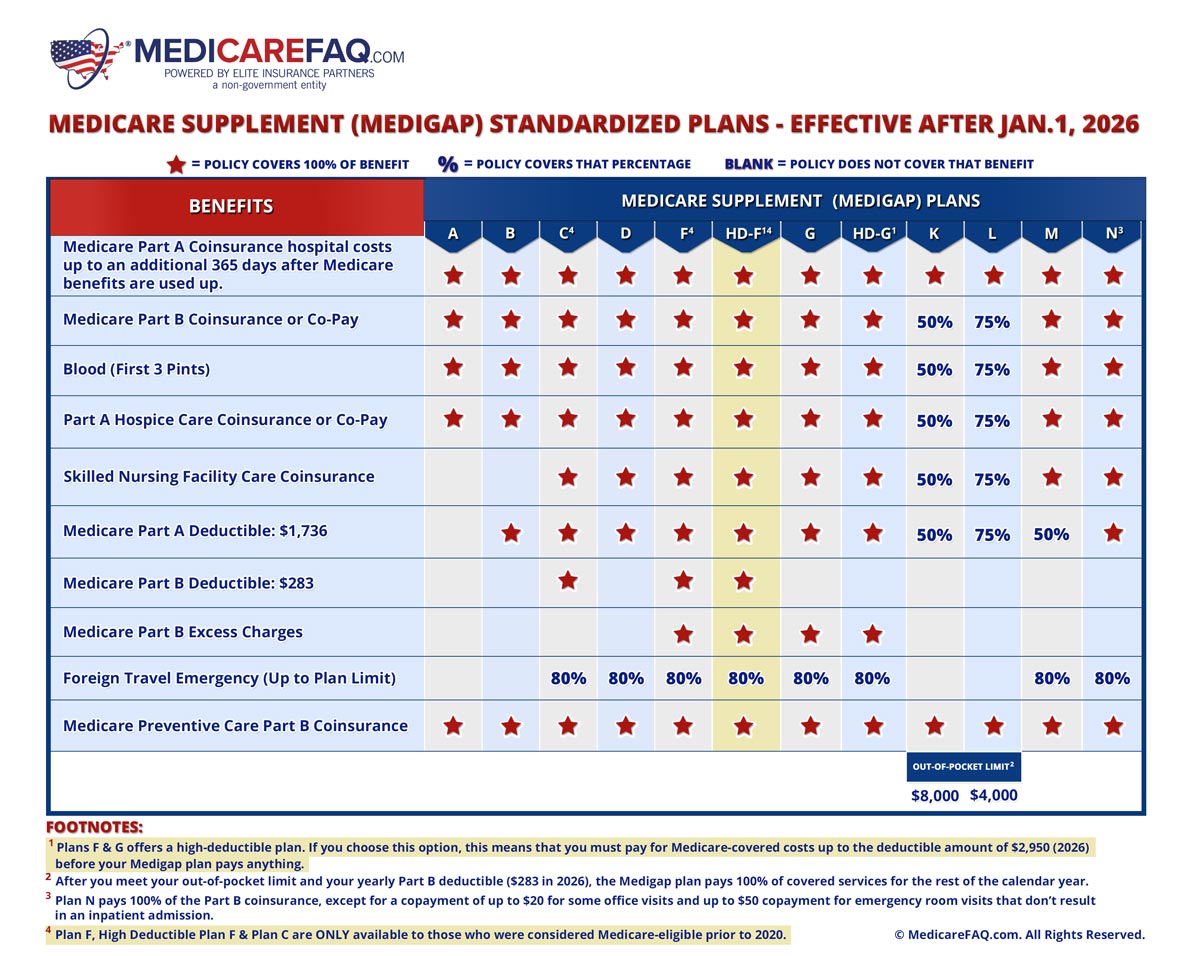Navigating Medicare: Understanding Plan F Supplemental Insurance
Are you feeling overwhelmed by the complexities of Medicare? You're not alone. Many people find themselves confused by the various options available, including supplemental insurance. One option you may have heard of is Plan F supplemental insurance, a Medigap policy designed to help fill the gaps in Original Medicare coverage. But is it the right choice for you?
Plan F, a type of Medicare supplement insurance, used to be a popular choice for individuals seeking comprehensive coverage. This plan provided significant protection against out-of-pocket costs, helping to manage the financial burden of healthcare expenses. Understanding the intricacies of Plan F supplemental insurance can empower you to make informed decisions about your healthcare future.
Historically, Plan F was introduced as part of the standardized Medigap plans created by legislation. It quickly gained popularity due to its comprehensive coverage. However, changes in Medicare law, specifically the Medicare Access and CHIP Reauthorization Act of 2015 (MACRA), impacted the availability of Plan F for new Medicare beneficiaries starting January 1, 2020. This means individuals who became eligible for Medicare on or after that date cannot enroll in a new Plan F policy. Those who already had Plan F coverage before the deadline could keep it. This shift highlights the importance of understanding the changing landscape of Medigap insurance.
The core purpose of Plan F supplemental insurance was to minimize out-of-pocket expenses associated with Original Medicare. It covered Medicare Part A and Part B coinsurance, copayments, and deductibles, offering peace of mind to beneficiaries. This comprehensive coverage was a significant draw for many. However, the unavailability of Plan F for newer beneficiaries has led to increased interest in other Medigap plans, such as Plan G, which offers similar coverage but excludes the Part B deductible.
Choosing the right Medigap plan requires careful consideration of your individual needs and budget. While Plan F provided extensive coverage, it also came with a higher premium. Understanding the trade-offs between coverage and cost is crucial. If you are eligible for Plan F (meaning you were eligible for Medicare before January 1, 2020), you have a valuable option for comprehensive coverage. If not, exploring alternatives like Plan G or Plan N can provide similar benefits while aligning with current regulations.
One significant benefit of Medigap Plan F was its comprehensive coverage of Medicare cost-sharing. For example, if you had a hospital stay and incurred Part A coinsurance, Plan F would cover those costs. Similarly, it would cover the Part B deductible and coinsurance for doctor visits and other outpatient services.
If you are eligible for Plan F and are considering enrolling, compare quotes from different insurance companies. Review the policy details carefully to ensure it meets your needs.
Advantages and Disadvantages of Plan F
| Advantages | Disadvantages |
|---|---|
| Comprehensive coverage | Higher premiums |
| Predictable out-of-pocket costs | Not available to new Medicare beneficiaries |
Frequently Asked Questions:
1. What is Plan F supplemental insurance? - It is a Medigap policy designed to supplement Original Medicare coverage.
2. Who is eligible for Plan F? - Individuals who were eligible for Medicare before January 1, 2020.
3. What does Plan F cover? - It covers various Medicare cost-sharing expenses, including Part A and Part B coinsurance, copayments, and deductibles.
4. Why is Plan F no longer available to new beneficiaries? - Due to changes in Medicare law (MACRA).
5. What are alternatives to Plan F? - Plans G and N are popular alternatives.
6. How much does Plan F cost? - Premiums vary depending on the insurance company and location.
7. How do I enroll in Plan F? - Contact private insurance companies that offer Medigap policies.
8. What are the benefits of Plan F? - It offers comprehensive coverage, minimizing out-of-pocket expenses and providing financial predictability.
In conclusion, Plan F Medicare supplement insurance, while no longer available to new Medicare beneficiaries, remains a valuable option for those who enrolled before 2020. It offers comprehensive coverage, helping individuals manage healthcare costs and providing peace of mind. However, understanding the limitations and exploring alternative options like Plan G is crucial for those ineligible for Plan F. Choosing the right Medigap plan is a personal decision. Carefully consider your needs, budget, and available options to select the plan that best suits your healthcare goals. Research different insurance companies, compare quotes, and don't hesitate to seek guidance from a qualified insurance professional to navigate the complexities of Medicare and choose a plan that provides you with the security and coverage you need.
Unlocking the mystery spooky bloxburg image ids
Eco chic unveiling the allure of pre owned rav4 hybrids
Archangel michael tattoos for men divine ink powerful symbolism







